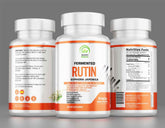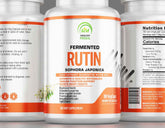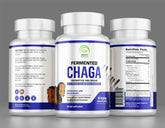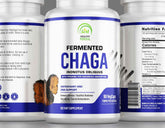Filter
4 results
20
- 10
- 15
- 20
- 25
- 30
- 50
Best selling
- Featured
- Best selling
- Alphabetically, A-Z
- Alphabetically, Z-A
- Price, low to high
- Price, high to low
- Date, old to new
- Date, new to old
Sort
Sort by:
- Featured
- Best selling
- Alphabetically, A-Z
- Alphabetically, Z-A
- Price, low to high
- Price, high to low
- Date, old to new
- Date, new to old
-
Shilajit Mumijo - Fulvic Acid
Mumijo: The Main Benefits of Natural Shilajeet Mumijo or Shilajeet is one of the most mysterious substances out there. It has been around for 50 million years and it’s a nutrient-dense biomass that’s become known for its medicinal properties. Nowadays, mumijo capsules or shilajeet...- €30,00
€36,00- €30,00
- Unit price
- / per
-
Kanna - Sceletium Tortuosum
Kanna Sceletium Tortuosum: What It Is and Health Benefits A lot of people don’t really think of brain health until they’re older. However, it’s never too early to take care of your brain and improve your cognitive longevity. That’s where kanna comes in, a...- €32,00
€40,00- €32,00
- Unit price
- / per
-
Turkey Tail - Trametes Versicolor
The Remarkable Health Advantages of Turkey Tail Mushroom Turkey tail mushroom is one of the most common medicinal mushrooms. It has been used for hundreds of years and they continue to provide relief today. In particular, turkey tail mushroom is used to treat pulmonary...- €35,00
€41,00- €35,00
- Unit price
- / per
-
Chaga - Inonotus obliquus
The Powerful Benefits of Chaga Mushroom Chaga mushrooms are not as well known as, say, shiitake or portobello mushrooms, but they’re amazing. Organic chaga fungus offers a lot of different health benefits you’ll want to be familiar with. So, in this article, we will...- €25,00
€31,00- €25,00
- Unit price
- / per
















